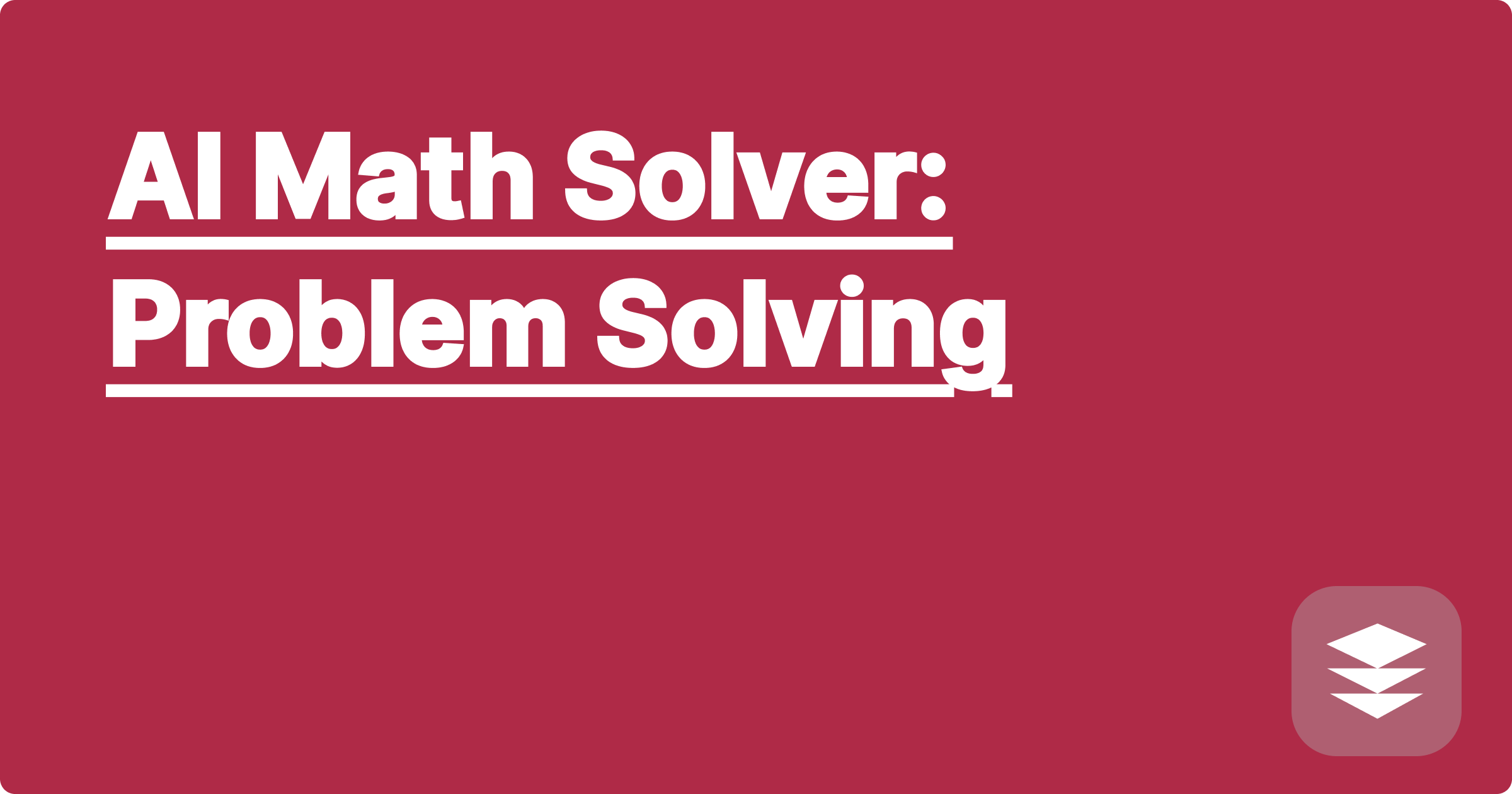
Juggling complex equations, deciphering dense research papers, and managing demanding coursework – the life of a STEM student is no walk in the park. Time is a precious commodity, and finding efficient ways to tackle academic challenges is crucial for success. Thankfully, the rise of artificial intelligence offers a powerful arsenal of tools to help STEM students and researchers not just survive, but thrive. This blog post delves into how AI can revolutionize your approach to problem-solving, focusing on a personalized learning experience and exploring some lesser-known AI tools that can give you a competitive edge. Think of this as a friendly chat with a senior who's been there and figured out the AI shortcuts.
From solving intricate mathematical problems to streamlining literature reviews, AI has the potential to become your personalized virtual assistant, boosting both your understanding and your productivity. Imagine having a dedicated AI partner, a GPAI (Generalized Personal AI), constantly by your side, ready to assist with everything from scheduling study sessions to analyzing complex datasets. This isn't science fiction; it's the reality of how AI is transforming the educational landscape. We'll explore how to harness this power, offering practical tips and real-world examples to demonstrate how you can integrate AI into your workflow and unlock your full academic potential.
STEM fields often involve tackling complex problems that require significant time and effort. For instance, solving a differential equation or analyzing a biological dataset can be a daunting task, demanding a deep understanding of underlying principles and meticulous attention to detail. Traditional methods often involve laborious manual calculations, extensive literature searches, and repetitive experimentation. This can lead to burnout and frustration, especially when deadlines loom large. The challenge isn't just about finding the right answer; it's about efficiently navigating the process, managing time effectively, and maintaining a healthy work-life balance. This is where the strategic use of AI tools can be a game-changer.
AI tools like Wolfram Alpha, Symbolab, and Mathway offer powerful capabilities for solving mathematical problems, from basic algebra to advanced calculus. These platforms can provide step-by-step solutions, helping you understand the underlying logic and identify areas where you might need further practice. Beyond these specialized math solvers, general-purpose AI assistants like ChatGPT and Claude can be invaluable for brainstorming research ideas, generating code snippets, and even summarizing complex research papers. These tools aren't just about getting quick answers; they're about empowering you to learn and explore more effectively.
Let's say you're struggling with a particularly challenging integral. Instead of spending hours poring over textbooks, you can input the equation directly into Wolfram Alpha. The platform will not only provide the solution but also offer alternative solution methods, visualizations, and related concepts. Similarly, if you're stuck on a coding problem, you can describe the desired functionality to ChatGPT, and it can generate code snippets in various programming languages. You can then refine and adapt this code to your specific needs, saving valuable time and effort. This iterative process of using AI for guidance and then applying your own knowledge for refinement is key to maximizing the benefits of these tools.
Consider a research project involving the analysis of gene expression data. Traditionally, this would require manual data cleaning, normalization, and statistical analysis. However, AI-powered tools like BioVinci can automate many of these processes, allowing you to focus on interpreting the results and drawing meaningful conclusions. For example, BioVinci can perform differential gene expression analysis, identify key pathways, and generate visualizations, significantly reducing the time required for data analysis. In another scenario, imagine you're preparing for a presentation on quantum mechanics. You can use Elicit, a research assistant, to quickly gather relevant research papers, summarize key findings, and even identify potential counterarguments, streamlining your preparation process.
Integrating AI into your workflow requires a strategic approach. First, identify your specific needs and challenges. Are you struggling with time management, problem-solving, or research? Once you've pinpointed your areas for improvement, explore the various AI tools available and choose those that best align with your needs. Don't be afraid to experiment with different platforms to find what works best for you. Remember that AI is a tool, not a replacement for your own understanding. Use it to supplement your learning, not to circumvent it. Critically evaluate the output of AI tools and always double-check results. Finally, integrate GPAI into your daily routine. Use it to schedule study sessions, set reminders, and track your progress. Treat it as your personalized learning companion, guiding you towards academic success.
Successfully leveraging AI involves more than just knowing which tools exist; it's about understanding how to integrate them effectively into your learning and research process. Think of GPAI as your personalized research assistant, helping you manage your time, organize your notes, and even brainstorm ideas. For example, you can ask GPAI to create a study schedule based on your upcoming deadlines, or to summarize key concepts from a research paper you're struggling with. By combining the power of specialized AI tools like Wolfram Alpha or BioVinci with the overarching organizational capabilities of GPAI, you can create a truly personalized learning experience.
By embracing these AI-powered solutions and incorporating them strategically into your workflow, you can not only improve your academic performance but also develop valuable skills for the future. The key is to view AI not as a shortcut but as a powerful partner in your learning journey, empowering you to overcome challenges and achieve your full potential. Start exploring these tools today, and discover how AI can transform your STEM experience.
AI Physics Solver: Conquer Mechanics
AI for Circuits: Simulate & Design
AI Calculus Tutor: Master Integrals
AI Bio Data Analyzer: Research Made Easy
AI Robotics: Build Smart Robots
AI Stats Helper: Ace Your Exams
AI Math Solver: Problem Solving
AI Data Science: Analyze Big Data